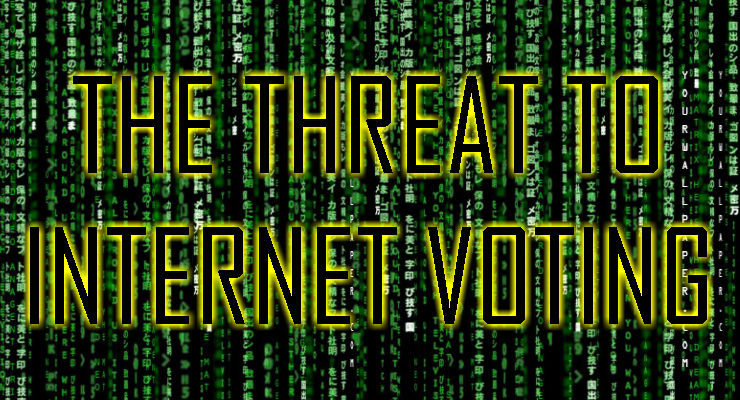
There have been only limited attempts so far at using the internet for any kind of voting and the vulnerability of internet voting to manipulation has not been adequately addressed. The latest news on this front comes from a really interesting article from Swissinfo, produced by the Swiss public broadcasting association:
A major bug has been identified in the new Swiss Post’s e-voting system. Hackers reported the flaw to Swiss authorities as part of a public intrusion test. Swiss Post has resolved the issue.
In mid-February, the Swiss government launched a public intrusion test, challenging IT experts to reveal cracks in the country’s new e-voting system by March 24. On March 12, a flaw concerning universal verifiability external link was discovered in the Swiss Post’s e-voting system by studying the system’s source code, which was released as part of the test. Universal verifiability makes it possible to determine with mathematical evidence whether votes have been manipulated.
While the flaw uncovered by the hackers does not allow the system to be penetrated, the Federal Chancellery still deemed it a “significant flaw” as it means it is not possible to detect whether the votes have been tampered with.
See the full article at Swissinfo. Much recommended is this video of a a discussion on voting technology from Tech@State, part of “a series of quarterly conferences run by the U.S. Department of State that bring together individuals in the technology sector and foreign policy experts with the aim of exploring new ways of incorporating technologies into diplomacy and development”. The video has the following summary:
Electronic voting and counting technologies are increasingly being used or considered around the world. This includes touch screen “direct recording” electronic voting machines, internet voting, and optical scan machines, mobile voting, as well as biometric voter registration and verification. While the use of these technologies can bring benefits, they have also been met with concerns. This panel will explore recent experiences and challenges with e-voting, how electoral officials have managed these challenges, and how election observers are adapting their methods to monitor these technologies.
Moderating the panel discussion is Michael McNulty, from the National Democratic Institute. Panelists include such experts as Michael Alvarez of the Caltech/MIT Voting Technology Project, Doug Chapin of the University of Minnesota, Ben Goldsmith of the International Foundation for Electoral Systems and Dan Nolan of Scytl, a leader in the business of electoral security technology. Watch the full video, about an hour and fifteen minute long, right here:
Be sure to also check out the Democracy Chronicles Election Technology section and our articles on Technology Dissidents, the Internet and Democracy or Voting Machines.
Leave a Reply